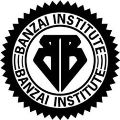The program I support has been wrestling with this very issue for some time now, and I'm actually writing my master's thesis on it. Opinions vary from person to person about how to actually "fix" what's wrong with our government, but ultimately, the common theme I keep hearing is people.
The best solution given the bureaucratic torpor and intellectual retardation of the Interagency as a whole right now is a people-based solution. Start by training and educating national security officers. Select them from age 18 and shephard their aptitudes toward a range of national security-related career fields, be it in the military, diplomatic corps, the financial sector, economy, law enforcement, or NGO. Ultimately get them to serve in a wide variety of Interagency positions but never long enough to become inculcated into one agency's specific culture. Within a few decades, we'll have a multiple disciplinarian workforce open to the idea of reforming the executive branch to the degree it requires based on evolving threats.
Who selects these new national security officers? How are they trained? Where is the management function for their pedigree? That's probably the only "new" organization you'd need to create-- something at the executive level, NSC or at least superior to the Interagency itself. It would be more of a mechanism, not an organization per se. Its function is function: It is the fulcrum upon which the levers of reform are pulled. Perhaps it's an institue. Perhaps it's a service. But it is the brand management mechanism for this new pedigree of national security service.
If this sounds a little spooky, unrealistic, or even - dare I say it - like a subversive organization... that's the point. I quite believe that nothing short of a "scorched earth" scenario could adequately reform the executive branch to the degree required in the short-term. Therefore, I'm willing to live with several more years of failure and mediocrity if I can develop the qualified professional workforce I need to fundamentally change how our national security apparatus works. The bureacracy in place now is designed to preserve the status quo, not encourage innovation. The best way you can enforce reform, is by infiltrating the system and destroying it from within... while making it look like what you're actually doing is transforming it.








Bookmarks